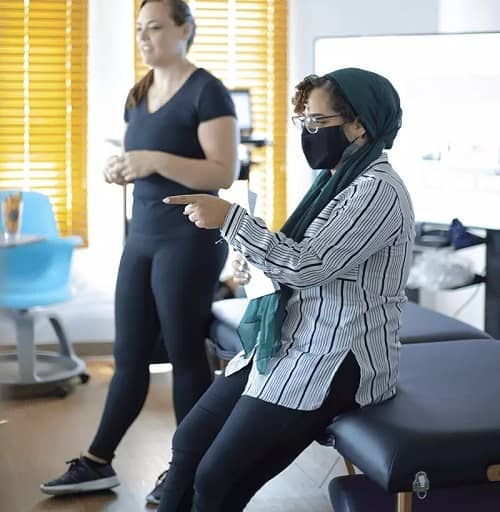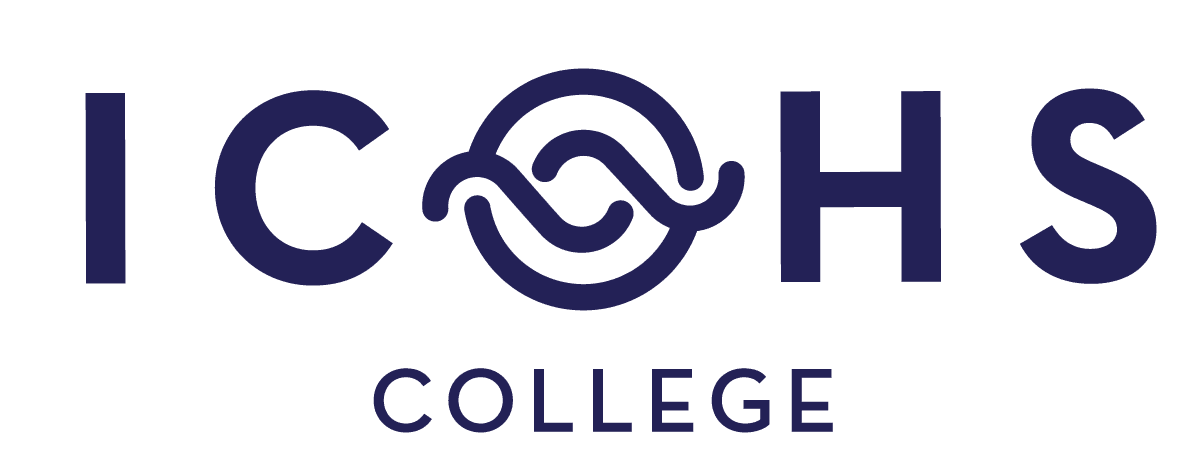Vocational education delivers practical, hands-on skills for students to use on the job during their program and immediately after graduation. The process is also known as Career and Technical Education (CTE).
There are a wide variety of industries and career options available through vocational education schools and programs. According to the National Center for Educational Statistics, the most popular career fields include the health sciences, trades (manufacturing, construction, repair, and transportation), and consumer services.
The benefits of vocational education fall into three main categories: strong job market and career growth, varied vocational school options, and investment value. Keep reading to learn more.
[toc]The Top 18 Benefits of Vocational School in 2021
1. Trade Schools Offer Hands-On Knowledge
Traditional universities focus more on theoretical knowledge than hands-on, practical training. That type of knowledge is great for certain jobs like engineering. However, for many people who attend universities, their education is primarily background knowledge so when they get a job, they will need to learn on the job.
Vocational training schools, on the other hand, have a stronger balance between background knowledge and hands-on training. As a result, you’re likely to be better prepared for the day-to-day tasks of your job than someone whose degree has emphasized theoretical knowledge, whether your job is in information technology, holistic healthcare, or another field.
2. Trade Schools Offer More Direct Training
When a student attends a traditional four-year university, they don’t spend four years studying their chosen field. The universities focus more on well-rounded liberal arts to teach students general skills and information.
The problem is that on top of your career training, you end up with silly and sometimes unnecessary classes like pottery-making and frisbee golf solely to meet your credit requirements.
Vocational training school focuses solely on the training you need for your job. You learn the practical skills you’ll need day-to-day in your career rather than skills that are less specific.
3. Individualized Attention from Experienced Instructors
In vocational education programs, you will learn from experienced practitioners who serve as mentors and trainers. Every school is different, but vocational training schools tend to have lower faculty-to-student ratios than traditional colleges, allowing each student direct supervision and guidance. You won’t have the large lecture halls where your needs get lost among 200 other students.
In fact, the average class at ICOHS College has a 1:10 teacher-to-student ratio. Compare that with the national average of 1:14 among all post-secondary schools, and to the 1:22 average at for-profit private institutions.
Your instructors are industry professionals, prepared not only to train you in specific techniques and skills but guide you to overall success in their particular field. Since they are active members of the industry, they are also well-placed to provide networking and internship opportunities.
4. Education at a Lower Cost / Investment Value
Vocational education is an investment of both time and money towards your personal growth and to build your career.
According to a 2002 report by the U.S. Department of Education (“National Assessment of Vocational Education”), students who attend vocational programs benefit from higher employment levels, increased wages, and increased job satisfaction rates.
Many students expect to go into some amount of debt when they invest in their education. However, graduating from a four-year university with $100,000+ in debt means you’re starting your career with a major hurdle to overcome.
Trade schools, on the other hand, are far more cost-effective. The annual cost is often lower than it is at traditional universities, and you’re also paying for two years in most cases compared to four or more. On top of this, ICOHS College offers financial aid as well as military financing options. As a result, you can start your career with far less debt and enjoy the profits of your higher income potential sooner.
5. Classes for Flexible Schedules
Traditional universities are set up for full-time students who have just graduated from high school and are completing all of their education before entering the workforce. Many of them have far fewer course options for students who work a 9-5 job and want to get their education in the evenings.
Vocational training schools have more diverse options because they serve a wider array of students. Most programs offer flexible full-time, part-time, or online schedules, allowing students to work around their work schedule or family needs.
At ICOHS College in particular, we offer hybrid programs as well which equip you with both practical and theoretical knowledge.
Teenagers can get started in vocational training in over 80% of U.S. high schools. At the same time, independent post-graduate institutes cater to the needs of nontraditional students and adult learners at any point in their careers. Students will find diversity in the ages and backgrounds of their vocational education peers.
6. Accreditation
Accredited vocational schools demonstrate a commitment to meeting quality standards through an independent accreditation process. The ACCET (Accrediting Council for Continuing Education and Training) is the leading national accrediting body for vocational schools.
Vocational programs may obtain additional approvals and certifications to assure their commitment to quality. For example, ICOHS College is accredited by ACCET and approved by the U.S. Department of Education, the U.S. Department of Veteran Affairs, and the California Bureau for Private Post-Secondary Education (BPPE).
In addition, specific professional programs within a vocational school may have additional certifications, such as the American Massage Therapy Association certification or the Cisco Certification for IT specializations.
Accreditation, approvals, and certifications are not just stamps on paper. They assure the community of a vocational school’s commitment to quality, improvement, and peer accountability. They may also open opportunities for professional licensing or additional funding sources.
7. Internships and Practicums
Vocational programs recognize hands-on training in a “real world” context is essential to helping students succeed. Vocational courses are typically delivered through traditional classroom learning and significant practical work in learning labs.
Quality programs build relationships with local companies and business leaders to offer internships and practicums, earn course credit, or provide paid opportunities. These opportunities help develop your skills further and provide employment history and references to round out a resume when applying for future positions.
8. Successful Job Placement
Career counseling and job placement is a large part of the mission of vocational schools. The school’s career services center may help with networking, posting available positions, resume writing, and interview skills to help you launch your career.
Students may find support through study groups, tutoring, and test-taking skills practice in industries with professional licensing exams. Some programs offer career support services not only at graduation but throughout your career.
9. Strong Job Market and Career Growth

At one time, vocational education was considered a less prestigious alternative for high school students not attending college. In recent decades, however, the prestige and strengths of vocational programs have grown, proven through strong rates of employment and higher wages.
Are you ready to take the next step in your career? Get started today. Fill out the form to speak with an Admissions Representative about enrolling at ICOHS College.
Today, prospective students can look to vocational education programs to gain practical experience and acquire the skills needed for jobs across in-demand fields.
10. Growth Industries
According to the U.S. Bureau of Labor Statistics, many of the fastest-growing occupations are in fields served by vocational education.
The COVID-19 pandemic has also helped demonstrate a need for skilled workers in fundamental infrastructure and service positions, including healthcare, electrical, construction, and automotive repair. Demand continues to rise as employers struggle to fill positions across the technical, healthcare, and manufacturing industries.
Well-trained, experienced employees in such industries are critical for the country’s economic growth. Vocational programs are the best way to introduce them to the workforce.
11. Strong Employment Qualifications / Attractive to Employers
Part of the reason trade schools are becoming so popular is because more employers are looking on them favorably. Because of the practical, hands-on training you get at a vocational training school, employers know you’re more prepared to do the job than many candidates with four-year degrees.
As a result, your chance of getting a relevant job with your certification after trade school is very strong and you’re likely to see the financial benefits sooner. Vocational schools also focus more directly on preparing you for your industry’s certifications like CompTIA or Cisco certifications which are often required by employers.
Thus, employers can be confident in their new employees’ technical and soft skills when hiring vocational graduates, simplifying the onboarding and training process. Often, graduates will have already obtained professional licenses and certificates.
12. Easier Path to Successful Careers
One of the most common myths is that traditional universities allow you to achieve more profitable careers than trade schools. The fact is that both types of education open the door to a wide range of successful career options. The income level depends on your career path rather than your degree.
Take IT for example. The median salary for the IT field is over $88,000 per year. That’s the case whether you have a four-year degree or a vocational school certification, so a vocational school is a more efficient way to get onto the same successful career path.
13. Faster Start to Your Career
The four-year period of traditional colleges is a significant amount of time. It’s a long time to either be out of the workforce by attending college full-time or to balance part-time college with a full-time job.
Vocational training schools, on the other hand, have more focused programs. The program length depends on the certification or degree you choose, but most trade school programs take less than two years to complete.
Depending on the program requirements and flexible scheduling options, some training programs can be completed in as few as six to nine months.
Students who fully complete their program and any required certifications reap the greatest benefits in employability and wages, both short and long term.
14. Funding Options
Vocational school is more affordable than earning a traditional four-year college degree. Tuition for vocational education programs is often less than that of universities, and since the time commitment is shorter, this can result in significant cost savings.
Vocational schools work with their students to offer financial aid and guidance. Available funding options include federal grants and loans, private grants and scholarships, low-interest cash payment plans, and paid internship opportunities.
As one of only a few approved MyCAA schools, ICOHS proudly provides military spouses with hands-on learning for exciting careers across the information technology and wellness fields.
Through government partnerships, various financial assistance programs are available specifically for U.S. military service members, spouses, and veterans. There are also special programs to support vocational training for individuals with disabilities.
15. Variety of Options
Trade schools, or career colleges, offer a wide variety of shorter programs for students looking for professional training in a certain field. For example, here at ICOHS College, we offer programs in Massage Therapy and Information Technology. Our students get training that is meaningful and practical. Trade schools are a great option if you don’t have the time or funds to attend a 4-year university.
16. More Start Date Options
Career colleges tend to have multiple start dates for their programs. Therefore, you don’t need to worry about missing an application deadline or having to wait an entire semester to enroll. ICOHS College has a new session beginning on March 16th.
Since trade schools don’t operate on the same semester schedule as traditional universities, it gives our students more freedom to start their journey towards success when they want to.
17. Easier Admission Requirements
Traditional universities can have very high standards for applicants due to the sheer amount of people that apply to them. They take your GPA and other extracurricular activities into account.
They also focus more on teens that are fresh out of high school or transfer students going to community college. Trade school requirements tend to be more relaxed, especially in certain fields.
18. Networking Opportunities
Instructors at trade schools tend to be working professionals in the industry you’re training for. Paired with the small class size, this makes it easier to build a network with those already in your desired field of work. Networking and making contacts can help you progress or move in your career after graduation.
Is Vocational Education Right for You?

If you need specialized training for your chosen career path, vocational education is an option worth exploring. Flexible scheduling and funding options make vocational school more affordable and manageable than ever.
Quality vocational programs assure accreditation and the long-term support needed for industry licensing and job placement. Experienced instructors will guide you in hands-on practice and on-the-job skills training. Upon graduation, you will be ready to enter the job market as an attractive, competent, and experienced employee with marketable skills in a growth industry.









